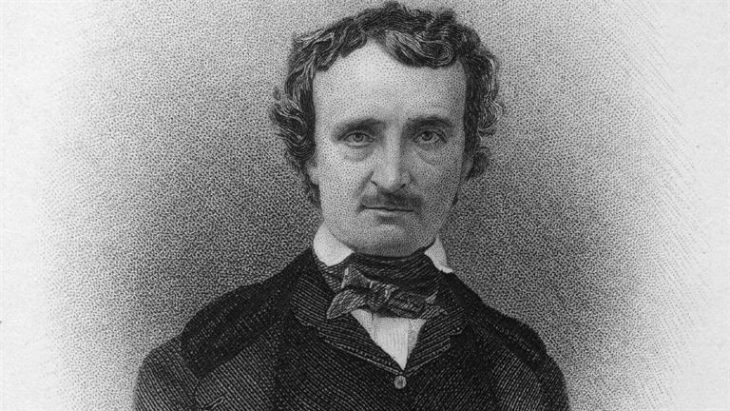
Poe’s Melancholy Muse
Miranda Alexander
“I was never really insane except upon occasions when my heart was touched.”
― Edgar Allan Poe
Death speaks to us. It may come as a soft and gentle whisper or as a sickening scream. Regardless of the way in which it arrives, we have all been touched by the loss of a loved one. Naturally, grief grips our heart with an unequivocal pain that gradually becomes more tolerable over time. We all have various methods of coping with the inevitable pang of loss. For the literary inclined mind, however, the most preferable tactic is creative release.
Prominent poet and writer, Edgar Allan Poe, knew the voice of death all too well. He was only three years old when his parents passed away. Separated from his siblings, Poe was raised by John Allan and his wife Frances Valentine Allan in Richmond, Virginia. Unfortunately, the loss of both parents would prove to be only the first dark chapter of his life. In 1847, Poe’s beloved wife and cousin, Virginia Clemm, died of tuberculosis. Her death rattled him to the core of his sanity, rending him incapable to write for months.
While death certainly had a habit of snatching away those he held dear, it also enhanced his need and desire to unleash his grave thoughts onto paper. Poe channeled his grief into his literary works. We can almost feel the burden of misery he must have bared as his sorrows bled from every stroke of his pen and into the tales we still eagerly read. Just as death was a constant in the writer’s life, it is engraved in numerous poems and short stories such as The Raven, The Murders in the Rue Morgue, and several more.
Although Poe is not the first American writer to fold to the act of killing off characters, he is perhaps, the most noted for his unique methods of elimination. Take The Murders in the Rue Morgue into consideration. Madame L’Espanaye, the first victim is nearly decapitated with a single swing of a razor and is hurled, headfirst from a fourth story window. The second victim, Mademoiselle Camille, moments later is throttled to death and shoved up a scarcely narrow chimney. For those unfortunate enough not to have read the story in question, advert your eyes if you wish to avoid a rather shocking spoil. While Poe introduces some fairly gruesome ends for the these two characters, it is not their deaths that leave us speechless. It is the temperamental Ourang-Outang responsible for the violent murders that blows our minds.
It’s beautifully strange and original ideas such as a razor wielding, homicidal monkey that beckons us to Poe’s macabre and mysterious works. Regardless of whether or not we care to admit it, the notion of death is both frightening and intriguing at the same time. Perhaps Poe faced this very conflict of battling against the trepidation and the lure of the entity which shadowed a vast measure of his life and work. Though we may never know the true depth of his pain, Poe left the literary world with a melancholy muse to die for.
One thought on “Poe’s Melancholy Muse”
This was beautifully written! I think it is interesting how much the things that happened at the beginning of our lives impact us later, even when we don’t realize it’s going to when it happens. I believe that Poe had to have realized that his writing about death was probably influenced by the death in his life, but I have a hard time believing that three-year-old Edgar sat in his room thinking about how funny it would be if a man took the heart of his victim and hid it under the floorboards of his room until the guilt of that action drove him to insanity, little Ed defending his story with the morbid but true “I’m only like this because my parents died.” I have heard arguments like this from people before, but only after years of self-evaluation and attention to the problems in their lives. I think that Poe was inspired by the bad things that happened in his life, but not always consciously.